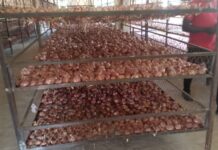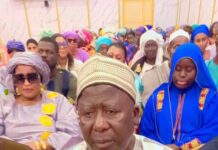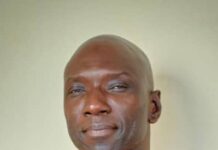By: Basidia M Drammeh
No sooner had the news spread like wildfire that Gambia’s former erratic strongman Yahya Jammeh would address his supporters last Friday than a tense atmosphere of apprehension, anticipation, and suspense has gripped the nation, amid unprecedented friction within the ranks of the party he formed more than two decades ago.
Alliance for Patriotic Reorientation and Construction has been beset by a power struggle fueled by an announcement in September by Interim APRC Leader Fabakary Tombong Jatta, Alias FTJ, that the Party executive has decided to form an alliance with the National People’s Party under the leadership of President Adama Barrow.
The declaration was met with skepticism and perhaps rebellion by certain members of the party who questioned the process leading to the alliance arguing that the Supreme Leader of the Party Yahya Jammeh has not blessed the marriage between APRC and NPP.
Not only has the decision caused turbulence within APRC, but it has also drawn sharp criticism against President Adama Barrow, with critics lashing out at him that he has put his own political interest first ahead of the country’s supreme national interest.
The breakaway No Alliance Movement within APRC was vindicated by Jammeh, who spoke to his followers on Friday, emphatically stating that the APRC executive has not received his blessing to ally with NPP, delivering a humiliating rebuke to FTJ and his team. Jammeh went further to sack Mr. Jatta and his team and formed a new one.
Unhappy with the alliance with NPP, Jammeh has directed his new lieutenants to go into alliance with the little-known Gambia National Unity Party (GANU) under the leadership of his former Justice Minister, Sheikh Tijan Hydara. The decision has left tongues wagging as to why Jammeh would choose GANU, given that the party is new and has been proactive in the political arena.
Barrow’s critics have seen Jammeh’s decision constitutes a rebuke to President Barrow, who has been cozying up to his party and went as far as paying a visit to his family “out of courtesy and respect for the former President.”
In reaction, the ousted Executive was adamant that they would not make a U-Turn on their decision to back President Barrow, arguing that APRC is not the property of President Jammeh. As a show of force, APRC and NPP staged a mega rally in Sukuta, which attracted huge crowds with speakers affirming that Jammeh’s decision would not have a bearing on the marriage between the two parties.However, some observers have seen the move as a mere political gimmick on the part of Jammeh to mislead the masses.
According to an observer who preferred to remain anonymous, since Jammeh has been an element of controversy in the NPP/APRC alliance, Jammeh publicly denounced the marriage in order to free Barrow, who human rights activists have mercilessly bashed for associating himself with a dictator who has presided over a repressive regime during his reign. The observer further argued that the entire drama is a ploy stage-managed by Jammeh to give Barrow a much-need lifeline at this critical moment. The argument holds water because the interim APRC Leader FTJ and his team have maintained unshakable loyalty to Jammeh and missed no opportunity to defend him and his legacy.
They have always given a deaf ear to those who called on them to distance themselves from Jammeh to gain societal acceptability. As a matter of fact, there have been rumours that the primary motivation of FTJ and his team to ally with NPP was to secure the unconditional return of President Jammeh and the return of his assets.
Contrary to this view, others argue that Jammeh’s verdict entangles President Barrow and could have severe consequences for his alliance with APRC, which is currently sharply divided. If that is the case, parties such as United Democratic Party and Gambia Democratic Congress stand to benefit from APRC’s split vote.
Though Yahya Jammeh has been living in exile in Equatorial Guinea since his defeat in the 2016 presidential election at the hands of the Coalition led by President Barrow, he remains popular among his fervent supporters. Whether NPP could benefit from its alliance with Fabakary’s APRC will largely depend on the outcome of the fast-approaching presidential election in December. Likewise, the very survival of APRC as a viable political party will also be gauged by the performance of GANU in the upcoming presidential and parliamentary elections.






